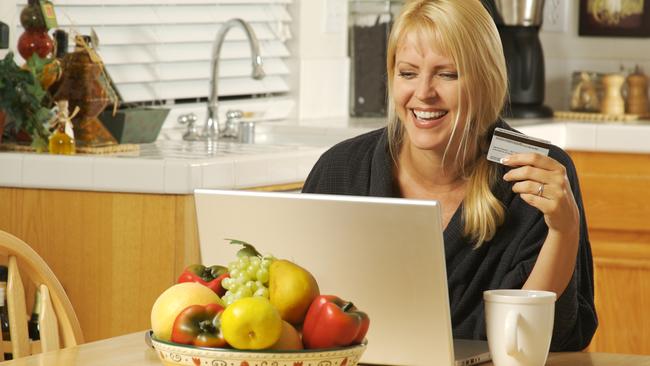Money tips to avoid being stung by fake Black Friday bargains
Black Friday and other retail sales can deliver some dodgy deals, but there are ways to separate the good from the bad.

National
Don't miss out on the headlines from National. Followed categories will be added to My News.
Bargain season is here, and consumers are being showered with advertising for this week’s Black Friday sales and beyond.
Working out what’s a decent discount and what’s a marketing con job can be tricky, plus there’s the ever-present threat of scammers trying to steal your money.
On top of that, major supermarkets have been under fire from politicians and the Australian Competition and Consumer Commission about pricing practices. This month the ACCC grilled retail bosses at a public hearing, and in September it started Federal Court action against Coles and Woolworths over alleged fake discounts.
It doesn’t matter whether you’re shopping for gifts, goods or groceries: fake deals are all around us and shoppers must be savvy to spot them.
Retailers call one practice “mark up to mark down”, which involves pushing up prices for several weeks before offering deep discounts to attract more customers.
“It’s to get an advantage in the marketplace and there’s a sales benefit as well,” says a former senior retail executive.
Queensland Consumers Association spokesman Ian Jarratt says questionable deals are not just pitched at grocery shoppers, with people buying travel and whitegoods also targeted.
“They are playing psychological games with us,” he says.
“
There’s this lack of clarity about when a deal is a deal and when it’s just the same price that they are always charging, or whether the regular price has been artificially lifted for a short period so they can later say there’s a reduction.
“Consumers have got to be aware of it.”
These tips can help you avoid fake deals.
UNIT PRICING
Sometimes supermarket specials may not be as attractive as they seem because you can get more value buying a larger-sized pack.
Supermarkets must display the unit price of each product – the cost per a unit of measure, such as every 100g or litre. This lets shoppers work out the true cost per item.
Jarratt says unit pricing is a shopper’s best friend, and a great way to compare products and offerings between different supermarkets.
“You can’t just rely on the difference in the selling price because the pack size might be different – even for national brands,” he says.
INTERNET COMPARISONS
Everyone holds the most powerful price comparison tool in their hand – the internet on their smartphone, which can be used to check live prices at other retailers. Before buying at the Black Friday sales, check competitors to see how their recommended retail prices and discounts differ, because many retailers price-match – sometimes automatically on their online marketplaces.
Jarratt says the internet is “a very powerful tool for people using it correctly, and if the information is reliable”.
Price comparison platform Zyft’s founder and CEO, Damien Waller, says don’t assume that the biggest retailers offer the best prices.
“Independent retailers with lower marketing budgets don’t always pop up at the top of search results, but that doesn’t mean they’re not offering a competitive deal,” he says.
“In fact, what they’re not spending on advertising may actually help reduce the final cost of the product at the check-out.”
RESIST TIME PRESSURE
Do your homework before hitting the shops, and understand that limited-time offers are designed to create a sense of urgency, Waller says.
“Shoppers must take the time to thoroughly research their purchases – particularly large ones – to compare prices before spending,” he says.
BEWARE SCAM WEBSITES
PayPal Australia says its research has found that 30 per cent of Australians have visited a fake retail website this year.
Government figures show last year almost 3000 fraudulent sites were operating, and PayPal Australia consumer shopping spokesman Dan Grant says caution is vital right now.
“Aussies should be extra vigilant during the sales period and recognise the signs of fake deals and sites,” he says.
“Slow down, use trusted payment methods and always trust your instincts – if a deal looks too good to be true, it probably is.”

SIGNS OF A FAKE WEBSITE
• Poor spelling and grammar.
• A lack of contact information and no physical address.
• No locked URL.
• No secure payment options.
Source: PayPal Australia
More Coverage
Originally published as Money tips to avoid being stung by fake Black Friday bargains





